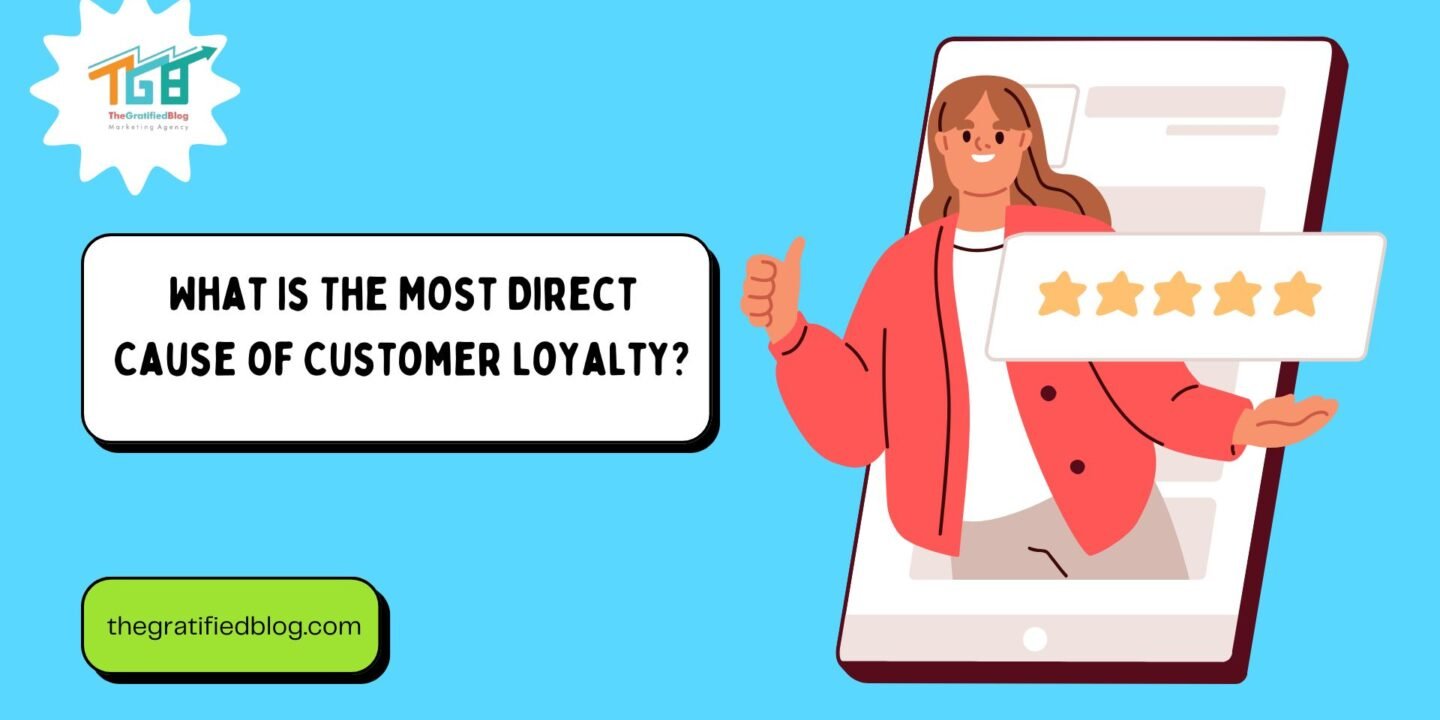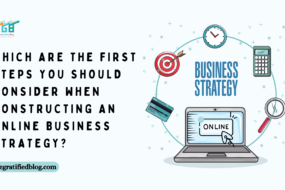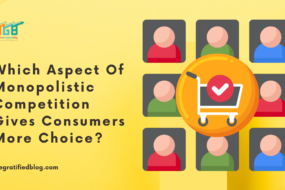
Customer loyalty is something every business wants. It is what keeps customers coming back instead of choosing a competitor. But what exactly makes a customer loyal? What is the most direct cause of customer loyalty?
There are many factors that influence loyalty, but one stands out as the most direct cause. Understanding this key cause can help businesses create better strategies to keep their customers happy, increase their value over time, and stay ahead of the competition.
In this blog, we will explore what truly makes customers stay and how businesses can use it to build stronger relationships with them.
What Is Customer Loyalty?
Customer loyalty refers to the consistent preference and trust that customers have toward a brand, leading them to repeatedly purchase from the same company rather than switching to competitors. It is built over time through positive experiences, high-quality products or services, and strong customer relationships.
Loyal customers not only make repeat purchases but also act as brand advocates, recommending the business to others and increasing its reputation through word-of-mouth marketing. Customer loyalty is crucial for businesses as it leads to higher customer retention, increased lifetime value, and reduced marketing costs.
Key Factors That Drive Customer Loyalty
- Quality Products/Services – Customers stick to brands that deliver reliable and high-quality offerings.
- Excellent Customer Service – Providing personalized support and resolving issues efficiently builds trust.
- Loyalty Programs & Rewards – Offering incentives like discounts, exclusive deals, or cashback encourages repeat purchases.
- Consistent Brand Experience – A brand that delivers the same quality and experience across all touchpoints fosters loyalty.
- Emotional Connection – Customers are more likely to stay loyal if they feel connected to the brand’s values and mission.
- User Convenience – Hassle-free purchasing processes, easy navigation, and seamless transactions enhance customer satisfaction.
- Customer Experience – A smooth, engaging, and enjoyable experience at every stage of the customer journey strengthens brand loyalty.
Types Of Customer Loyalty
- Transactional Loyalty – Customers return due to rewards or incentives like discounts or points-based loyalty programs.
- Emotional Loyalty – Customers feel a strong personal connection with the brand, leading to long-term commitment.
- Behavioral Loyalty – Customers stick with a brand out of habit or convenience rather than emotional attachment.
- Advocacy Loyalty – Customers actively promote and recommend the brand to others.
Importance Of Customer Loyalty
- Boosts Revenue – Loyal customers spend more over time.
- Reduces Acquisition Costs – Retaining existing customers is more cost-effective than acquiring new ones.
- Enhances Brand Reputation – Happy customers become brand ambassadors.
- Improves Business Stability – A loyal customer base provides consistent revenue and business growth.
Building and maintaining customer loyalty requires ongoing effort, but businesses that invest in strong customer relationships ultimately see long-term success.
What Is The Most Direct Cause Of Customer Loyalty?
The simple answer is positive customer experience.
When customers have a positive experience, they stay. They do not look for alternatives. They feel comfortable spending their money because they know they will receive good service and value. A great experience is the foundation of loyalty.
What Is A Positive Customer Experience?
A positive customer experience refers to the overall perception a customer has of a brand based on their interactions throughout the customer journey. It involves every touchpoint, from the first interaction with marketing materials to purchasing a product, receiving support, and even post-purchase engagement.
Key Elements Of A Positive Customer Experience
- Seamless Communication: Customers expect clear and quick responses across multiple channels (email, chat, phone, social media).
- Personalization: Understanding customer needs and offering tailored solutions makes them feel valued.
- Ease of Use: Whether it’s a website, app, or physical store, an intuitive and user-friendly experience is crucial.
- Fast and Effective Support: Quick problem resolution with minimal effort from the customer enhances satisfaction.
- Consistency: A smooth and consistent experience across all channels builds trust.
- Empathy and Understanding: Customers appreciate when businesses listen to their concerns and offer compassionate solutions.
- Proactive Engagement: Reaching out with helpful information, follow-ups, or loyalty rewards enhances the overall experience.
How Does Positive Customer Experience Lead To Customer Loyalty?
People do not stay with a business just because of its products. They stay because they know they will always get a smooth and pleasant experience. Here is how a positive customer experience creates loyalty:
- Reliability – Customers know they will get what they expect every time.
- Consistency – A business that provides the same good experience every time keeps customers coming back.
- Honesty – If a business is transparent about pricing, policies, and services, customers feel safe.
- Responsiveness – When customers have problems, they want quick and helpful solutions.
- Fairness – Customers stay with businesses that treat them well.
When a business focuses on creating a great experience, customers feel good about buying from it again.
How To Create A Positive Customer Experience?
Since a great experience is the most direct cause of loyalty, businesses must focus on providing it. Here are some simple and practical ways to do that.
1. Deliver What You Promise
Customers expect businesses to keep their word. If a business promises high quality, fast delivery, or a great experience, it must deliver exactly that. If it fails, customers feel disappointed and look elsewhere.
How to do this:
- Be clear about what customers can expect.
- Do not make big promises if you cannot keep them.
- Fix mistakes quickly if something goes wrong.
2. Provide Excellent Customer Service
Customers remember how a business treats them. If they receive friendly and helpful service, they are more likely to come back.
Ways to improve customer service:
- Train employees to be polite and helpful.
- Respond quickly to customer inquiries.
- Offer multiple ways for customers to reach you (phone, email, chat).
3. Be Honest and Transparent
People appreciate businesses that are upfront and clear. If a company hides fees, tricks customers, or gives misleading information, customers will never return.
What businesses should do:
- Clearly display prices and fees.
- Admit mistakes and apologize when needed.
- Be open about company policies.
4. Reward Loyalty
Customers love to feel appreciated. If a business rewards them for staying, they are more likely to come back.
Ways to reward customers:
- Give discounts to returning customers.
- Offer a simple loyalty program.
- Send personalized thank-you messages.
5. Offer High-Quality Products or Services
If a business sells bad products, no discount or reward program will make customers stay. Quality is a must.
How to ensure quality:
- Regularly check for defects or problems.
- Take customer feedback seriously.
- Improve products based on customer needs.
6. Make Shopping Easy and Convenient
A business that makes life easier for customers gains loyalty quickly. If people struggle to place an order, find information, or make returns, they will go elsewhere.
How to improve convenience:
- Offer easy payment and checkout options.
- Make returns and refunds simple.
- Keep the website or store well-organized.
7. Stay Connected With Customers
A business that stays in touch with customers builds a strong relationship. This helps keep the positive experience alive.
Ways to stay connected:
- Send helpful emails or updates.
- Use social media to interact with customers.
- Ask for feedback and make improvements based on it.
Why Positive Customer Experience Matters More Than Other Factors?
Many businesses focus on price, rewards, or promotions. These are important, but they do not create deep loyalty. A customer may buy from a business once because of a discount, but they will not return if the experience is bad.
Here is why a great customer experience matters more than:
- Low prices – People may buy once because something is cheap, but they will not return if they have a bad experience.
- Big marketing campaigns – Ads can bring in new customers, but only a great experience keeps them coming back.
- Loyalty programs – Points and rewards work only if customers already enjoy doing business with the company.
A positive experience makes customers feel comfortable choosing the same business again and again.
Common Mistakes That Hurt Customer Experience
Even businesses with the best intentions sometimes make mistakes that drive customers away. A poor experience can break loyalty faster than anything else. Here are some common mistakes businesses make:
1. Ignoring Customer Feedback
Customers want to feel heard. If they leave reviews or suggestions and the business ignores them, they will not feel valued.
How to avoid this mistake:
- Read and respond to customer reviews.
- Use feedback to improve products and services.
- Make it easy for customers to share their opinions.
2. Making the Buying Process Complicated
If a website is slow, checkout is confusing, or customer support is hard to reach, customers will leave.
How to fix this:
- Keep the website easy to navigate.
- Offer a smooth checkout process.
- Provide multiple ways to contact customer support.
3. Hidden Fees and Misleading Prices
No one likes to feel tricked. If a business adds surprise charges at checkout, customers will not trust it.
How to prevent this:
- Show all costs upfront.
- Be transparent about fees and policies.
- Offer clear explanations for pricing changes.
4. Long Wait Times for Support
When customers have a problem, they want quick help. If they have to wait too long, they will look for alternatives.
How to solve this:
- Offer fast response times for customer service.
- Provide self-help options like FAQs and chatbots.
- Apologize if there is a delay and offer updates.
5. Poor Product Quality
Even the best service cannot make up for a bad product. If customers receive something that does not meet their expectations, they will not return.
How to fix this:
- Perform regular quality checks.
- Use better materials or suppliers.
- Offer easy returns for defective products.
6. Not Appreciating Loyal Customers
Businesses often focus on getting new customers and forget about the ones who already support them.
How to avoid this mistake:
- Offer special rewards for returning customers.
- Send personalized thank-you messages.
- Give exclusive discounts to loyal buyers.
Examples Of Businesses That Focus On Customer Experience
Some businesses are great at creating positive customer experiences, and they have strong customer loyalty as a result. Here are a few examples:
- Amazon – Customers enjoy shopping with Amazon because it delivers fast, has a simple return policy, and provides great customer service.
- Apple – Apple users return because of its high-quality products and strong customer support.
- Starbucks – Starbucks offers a consistent experience with personalized drinks, a strong rewards program, and friendly service.
These companies do not just sell products—they focus on creating a great experience, and that is why customers stay loyal.
Final Thoughts
By now, you have understood what is the most direct cause of customer loyalty—it is a positive customer experience. When customers have a great experience, they return, recommend the business to others, and choose it over competitors.
Businesses that focus on experience—through honesty, reliability, great service, and quality—will always have loyal customers. If you want customers to stay, focus on creating a smooth and enjoyable experience first. Everything else—like price, rewards, and marketing—comes second.
Would you rather buy from a business that offers a big discount but has poor service, or a business that always makes your experience pleasant and hassle-free? The answer is clear.
A great customer experience is everything. Create it, and customers will never leave.
Frequently Asked Questions
Q1. What is the most direct cause of customer loyalty?
Ans. The most direct cause of customer loyalty is a positive customer experience. Customers return when they feel valued, receive good service, and have a smooth and pleasant interaction with a business.
Q2. How can a business improve customer experience?
Ans. Businesses can improve customer experience by providing great service, being honest, making shopping easy, listening to customer feedback, and ensuring high product quality.
Q3. Why do customers leave even if the prices are low?
Ans. Low prices can attract customers, but they will not stay if the experience is poor. If customer service is bad, products are low quality, or the buying process is difficult, customers will leave no matter how cheap the price is.
Q4. Do loyalty programs really help keep customers?
Ans. Loyalty programs can help, but only if the customer experience is already positive. If people have a bad experience, no amount of discounts or points will make them stay.
Q5. What is the biggest mistake businesses make in customer service?
Ans. The biggest mistake is not listening to customers. Ignoring feedback, taking too long to respond, or failing to solve problems quickly can drive customers away.








No Comments